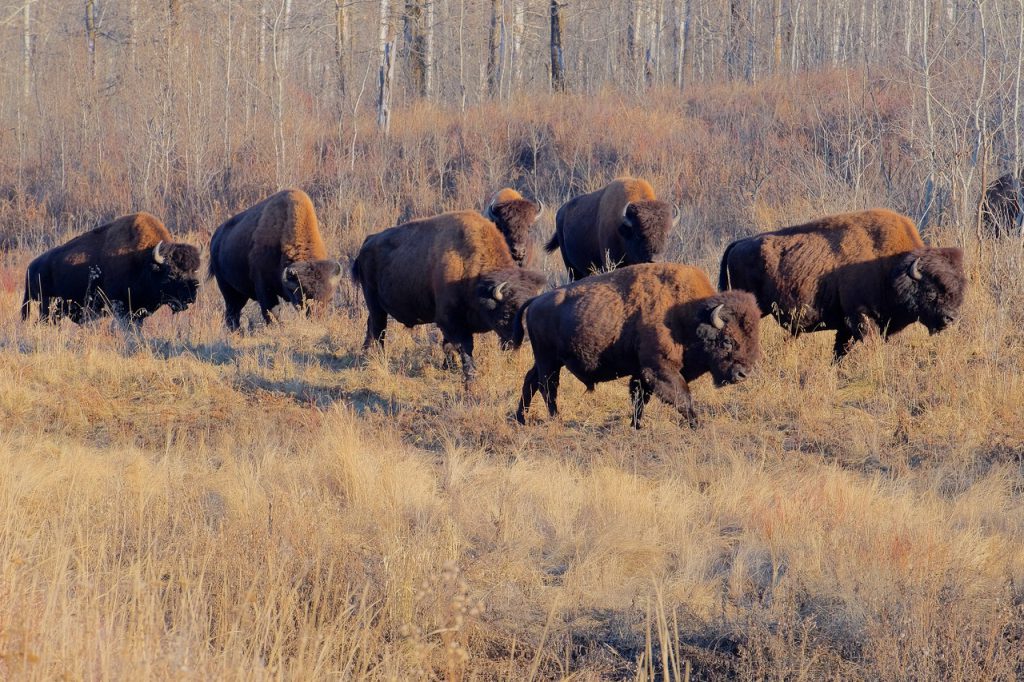Canada’s wood bison near proposed oil project face ‘imminent threats’

Canada’s wood bison, who live in northern Alberta near the proposed site of Teck Resources Ltd’s Frontier oil sands project, face “imminent threats” to their recovery, a report from the country’s environment department said.
A one-page summary released late on Wednesday said Environment Minister Jonathan Wilkinson has concluded that “immediate intervention is required to allow for recovery.”
Canada has listed the wood bison, North America’s largest land mammal, as threatened since 2003
The summary does not mention Frontier, which would operate for 40 years starting in 2026. But it said the Ronald Lake herd is at risk of contracting disease in the Wood Buffalo National Park and of losing range to “proposed industrial activities.”
Wilkinson must decide by the end of February whether to approve C$20.6-billion ($15.67 billion) Frontier. He could also delay.
In a statement, Wilkinson said he takes indigenous concerns about the bison “very seriously.” He said Ottawa is working with Alberta to further protect the herds.
“Action to protect the bison is required regardless of the Teck Frontier project. The decision regarding the Frontier oil sands mine is a separate decision.”
If Prime Minister Justin Trudeau’s government says yes to Frontier, it would jeopardize his promise to reduce greenhouse gas emissions to net zero by 2050. Saying no could infuriate Alberta, which is already angry over a perceived federal bias against the energy industry.
Canada has listed the wood bison, North America’s largest land mammal, as threatened since 2003. Nine of 12 free-ranging herds are disease-free, and a federal strategy aims to help the population recover.
Two herds in northeastern Alberta face imminent threats, the report said.
Frontier would encompass part of the Ronald Lake herd’s range. Development could cause the bison to move into the park, putting it in contact with herds carrying bovine tuberculosis or brucellosis, according to a report last year commissioned by the federal government and Alberta Energy Regulator.
Their continued use by indigenous peoples depends on remaining disease-free.
It is unlikely that Ottawa could impose conditions on Frontier to protect the bison, said Carolyn Campbell, conservation specialist at Alberta Wilderness Association.
“We don’t have confidence that putting a big open-pit mine smack dab in the middle of a bison herd could be mitigated.”
If Frontier proceeds, Teck will build barriers to keep the herd from Frontier operations, reclaim land for habitat, and maintain indigenous access, spokesman Chris Stannell said.
Chief Executive Don Lindsay said on Wednesday that the company needs a pipeline to be built, a partner, and favorable oil prices before deciding to proceed with Frontier.
($1 = 1.3142 Canadian dollars)
(By Rod Nickel and Kelsey Johnson; Editing by Marguerita Choy)
More News
Contract worker dies at Rio Tinto mine in Guinea
Last August, a contract worker died in an incident at the same mine.
February 15, 2026 | 09:20 am
{{ commodity.name }}
{{ post.title }}
{{ post.date }}




Comments